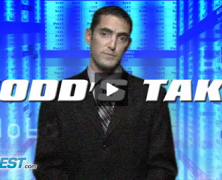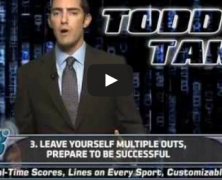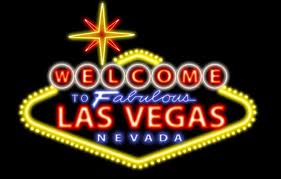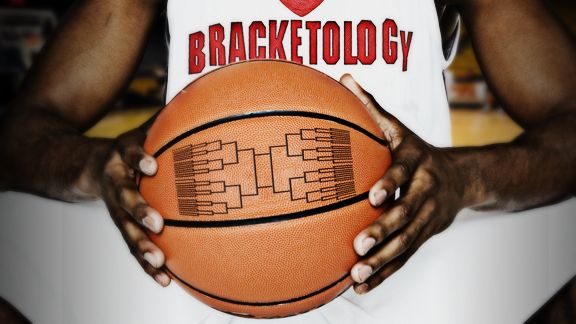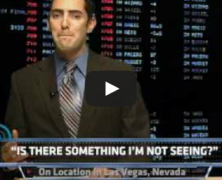Every year around each sport’s respective postseason people struggle with a major question in sports investing: to hedge or not to hedge when it comes to their season long futures or short term series prices. Depending on who you ask, you can get very different answers about the best way to handle the situation. My goal here isn’t to tell you which is better than any other but rather provide the few schools of thought that should always be considered based on the individual bettor’s financial goals and needs. Thought process #1: don’t hedge at all. Simply put, you took a calculated position from the start to gain an edge and you’re now sitting in a position of positive expectation. There’s no better feeling than grabbing a relative longshot during the middle of the season and then seeing your investment make it all the way to the finals. If you saw value in the investment months ago, clearly having a 20-1 shot to win just one series offers value beyond your wildest expectations. Bettors who consistently find these wagering opportunities will profit handsomely over the long haul without question. Thought process #2: do enough to turn your long term investment into a break even proposition as the worse case scenario. These type of hedge opportunities present themselves more frequently prompting deliberate thought and calculated execution to be successful. Perfect example of this betting opportunity happened to me between Saturday and today. I’m currently sitting on a Bruins ticket to win the East at a paltry +200 from last round. Rather than scalp a portion of my risk back in Pittsburgh at -190 for the Eastern Conference finals I decided to let the bet go for Game 1. After Boston’s Game 1 win, the series...
So you Want to be a Tout...
posted by Todd
So you’ve been a successful bettor for a while and feel your methods are ready to be sold to the masses; there’s a lot more to it than just making picks when you’re a professional handicapper looking to build a business. Based on personal experience, let me tell you it’s a roller coaster ride selling picks online. Follow the author on twitter @MisterQuinnBets First off, I should clarify my qualifications to discuss this topic. I ran a successful tout service with one of my best friends for three years called Broad Street Cappers. Although our selections were profitable for our clients, we were never able to ramp up the client base as much as we’d hoped to make it worth our while. After the NCAA Hoops Championship game, we decided to shut down the site. The most important part of selling picks is winning. Seems simple and obvious, but as any real professional sports bettor will tell you, that can be harder than it appears. Hitting at a 52.38% rate is the name of the game and if you’re considering becoming a professional pick seller you should have a long term track record of hitting at at least 55%. Bottom line, if you’re not winning it will be difficult to grow your client base and sell your service using a straightforward approach. You need to have full confidence in your methods in order to successfully promote your service and abilities. Honesty and transparency are key factors that will differentiate you from most of the industry. Unfortunately the business is filled with scam artists, losers, deceitful marketers, and flat-out dishonest people. The cappers that earn others’ respect and are ultimately successful are people that put themselves and their reputation on the line every night. This...
Reading Steam and Understanding Fading the Public...
posted by Todd
You hear these terms thrown around all the time: steam move and fading the public but what exactly do they mean? There are some serious fallacies about how the true meaning of each term and exactly how one can use the two concepts to turn themselves into a long term...
Lessons in money management...
posted by Todd
I’m not the Warren Buffet of sports betting but I have been known to make a wager or six. People always ask questions about the best practice for handicapping games such as what stats/metrics do professional bettors value or how should someone approach the futures markets. Don’t get me wrong, all of these topics are relevant in helping achieve long term success and stir great debate depending on who you ask but they pale in comparison to mastering money management. We all know plenty of bettors and financial advisers that find great money making opportunities regularly yet never have their own funds to invest in the “next big thing.” Why is that? Plain and simple they don’t handle their finances well when everything is coming up roses nor do they understand damage control principles to protect their money when the chips are down. Here’s my advice on the topic highlighted by 2 schools of thought for bankroll management every bettor should understand....
Top 10 Tips for Sportsbettors...
posted by Todd
We’ve all been there, looking for advice about how to build a strong betting foundation. This game isn’t for the faint of heart so establishing strong principals become invaluable down the...
Miscalculated Gamble
posted by Todd
Every once in a while there are news stories that make you scratch your head and ask why. They elicit a strong gut reaction for a variety of reasons both good and bad. Yesterday an article appeared in the Washington Post discussing a Nevada bill that would expand sports gambling to allow groups to form and make big wagers. In theory, it’s a great idea that gives bettors legal access to Nevada books for placing wagers yet this proposal is fundamentally flawed from it’s inception and doomed to fail unless sportsbook culture in this state changes entirely. To read the article in it’s entirety click here Rather than sit on a soapbox and look down my nose at groundbreaking legislation which is aimed to advance our industry I think breaking down quotes and content from the article better illustrates my frustrations and why I don’t see this as a long term solution or feasible in any capacity. “The bill received its first hearing in a Senate committee Monday as a leading gambling executive projected that Nevada sports books could see action nearly triple in the next five years if it were to become law. The bill would add “entities” to be formed and authorized to make sports bets. The groups could act as a type of hedge fund and wager big dollars on football, basketball, baseball and other sports. In turn, they could seek out investors to put up money and “leave it up to the expert to make the bet,” Brower said.” My first question: how would this triple action for the books? I mean sure, it would triple the volume and betting handle that casinos see flowing through at the top line but I can say with 99.9% confidence this wouldnt be profitable for every shop. There’s already a reluctance in Nevada to...
Bracket Science
posted by Todd
We all have methods to try and pick our paper champion before Thursday’s bracket deadline. Best conference? Toughest mascot? Coolest uniforms? Coin flip methods? Neither are entirely correct nor scientific however one man has zeroed in on a few criteria that make pegging the squad to cut down the nets in Atlanta a little easier. Now about finding the best future prices to bet these teams in an attempt to maximize profits… Enter the official 2013 #Beatthebookie contest by clicking here Compete for cash, Donbest prizes, and merchandise by clicking here Bracket Science was Written by Peter Tiernan and can be found in its entirety here Now that the seeds are announced and the season has played out, we can list our final teams that meet the qualifications that the last dozen champions have possessed: A one, two or three seed Member of a Power conference: ACC, Big East, Big Ten, Big 12, Pac-10 or SEC Either went to the previous year’s dance or have an All-American Led by a coach with more than five tourney trips and at least one Elite Eight run Averaging more than 73 points per game Allowing fewer than 73 points per game An average scoring margin of at least seven points per game A schedule among the 75 strongest in the country. Only four teams meet all these conditions: Louisville, Kansas, Indiana and Duke. Not a bad collection of teams to run with. I also did two different KenPom tests to determine the champ. My first one was based on offensive and defensively efficiency ranking. I had used the thresholds of 17th in OE and 25th in DE—but I realized these rankings were based against the tourney field and not all 247 D-I teams. So I relaxed the...
Pointspreads vs Power Ratings...
posted by Todd
Bettors seem to use these terms interchangeably which isn’t correct. Power ratings provide a baseline for bettors and oddsmakers to use before they make their important handicapping decisions. Quick hitting lesson on how the 2 terms are more different than people...
Perspective from the Sloan Conference...
posted by Todd
Written by Justin Zovas (follow him on twitter @JustinZovas) As I watch a college basketball game with friends and casually calculate Louisville’s expected points on a particular possession, I won’t deny it, I’m the weird one. But for two days this past weekend at the MIT Sloan Sports Analytics Conference, I was incredibly normal. For us sports geeks who worship the intersection of quantitative analysis and athletic competition, this was our Super Bowl. Over 2,700 like-minded enthusiasts congregated in the Boston Convention Center to celebrate the strengthening marriage between sports and analytics. Much to my pleasure, attendees from professionals to students were very approachable and eager to discuss new ideas and theories. One seemingly universal theme throughout the conference that warrants further discussion is the challenge to differentiate processes and outcomes. When the former NFL coach turned ESPN analyst was asked whether the Raven’s aggressive move to perform a fake field goal in the Super Bowl was a smart decision, Herm Edwards responded by asking, “Well, did they win the game?” Humans, even the most elite decision makers in an industry, have a persistent fixation on outcomes. In reality, the process in coming to a conclusion or decision is far more important than the outcome. The merit of a particular decision should be determined by evaluating the process, not the outcome. For example, let’s take gambling against the spread in any sport. When we pick a side we theoretically have a 50% chance of being correct. Statistically speaking, the outcomes of 50/50 propositions have the greatest variability. That is, the closer an event is to 50/50, the more random the results are. We can perform a spot-on analysis of a match-up and there is still a good probability that the game plays out different...
Rollover Impact
posted by Todd
Written by Matt Lindeman (follow him on twitter @lindetrain) With the latest edition of March Madness on the horizon, bettors have begun to turn their attention towards finding potential gold mines in the upcoming NCAA tournament. Most of those one shining moments (they believe) come in the form of futures—taking stabs at long shots potentially equipped for a deep (or respectable) run in the field of 68. What they don’t realize is, more often than not, these “value bets” are anything but. A much easier—and more profitable—approach is right in front of them: rolling a team’s money line over from round to round. To prove my thought process, here are two examples from both the past and present: VCU in 2011 (when they made their remarkable Final Four run), and California this year (a suddenly popular futures dark horse). According to sportsoddshistory.com, 11th-seeded VCU entered the 2011 tournament at 300/1. While some believe these large odds provided ample room to hedge and rake in profits when they made a run, a closer examination shows that rolling over the money lines would’ve paid significantly more handsomely. We’ll assume a $100 bet to start, rolling that—along with the winnings—into each game. Now, before we get into the astronomical numbers the caveat should be added playing 5 figures on a moneyline is difficult logistically but similar limitations could also impact your ability to hedge a straight future bet as well. (Money lines provided by scoresandodds.com; projected title game money line based on semifinal spreads) Start amount: $100 1st round (+165 vs. USC) — $100 to win $165 2nd round (+220 vs. Georgetown) — $265 to win $583 3rd round (+400 vs. Purdue) — $848 to win $3,392 Sweet 16 (+170 vs. Florida State) — $4,240 to win...
Trap Lines: A Betting Misconception...
posted by Todd
You hear the term thrown around all the time: “Trap!” Put plain and simple, the word trap gives the entire oddsmaking fraternity too much credit because it implies we know the outcome before games are even played. Of course the best in the business effectively steer action to create decisions in the house’s favor but they don’t inject their opinion into every game on the betting board. Every line tells a story and bettors that rely on calling certain prices “traps” do so as a crutch because they don’t understand what a particular price is trying to tell...



